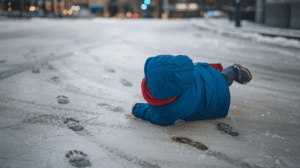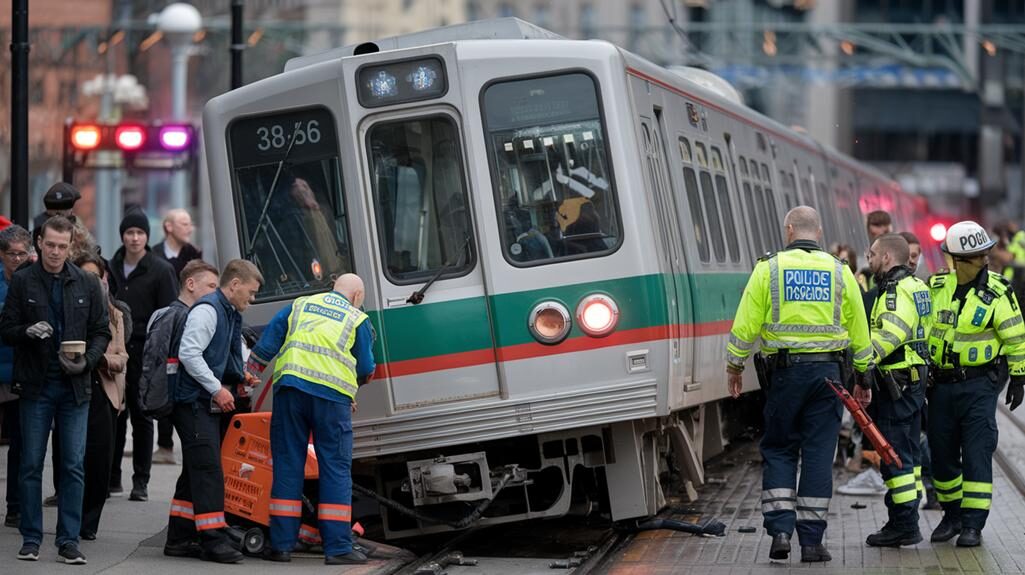If you’ve been injured on the premises of Shaws, you’re likely seeking a Boston Shaws slip and fall lawyer to understand your rights and the legal process. At Jason Stone Injury Lawyers, we can help you comprehend premises liability laws and establish the property owner’s liability.
To increase the chances that you receive fair compensation for your injuries, you’ll want to take certain steps. Consulting with a qualified Boston slip and fall accident lawyer can provide you with the guidance you need to ensure your rights are protected and your claim is handled efficiently. We’re ready to help you build a strong case.
Slip and Fall Claims
You’ll need to comprehend the process of filing injury claims if you’ve been involved in a slip and fall accident. Our Boston personal injury lawyer can help you with:
Injury Claims
If you’ve been injured in a slip and fall accident, your priority is to seek medical attention and then consider filing an injury claim to recover damages. You’ll need to gather medical records and documentation to support your claim, including hospital bills, doctor’s notes, and test results.
When filing an injury claim, you’ll need to provide detailed information about your accident, including the date, time, and location. You’ll also need to describe the injuries you sustained and the medical treatment you received. It’s important to be accurate and thorough when providing this information, as it will help establish the legitimacy of your claim.
Accident Liability
Determining accident liability is important in personal injury claims, as it directly impacts the outcome of your case. You’ll need to establish that the property owner or manager breached their duty of care, leading to your slip and fall accident.
To establish accident liability, you’ll need to consider the following factors:
- The property owner’s knowledge of the hazardous condition
- The length of time the hazardous condition existed
- The owner’s failure to warn you of the hazard
- The owner’s failure to repair or remove the hazard
- The duty of care owed to you as a visitor or customer
You must demonstrate that the property owner failed to meet their duty of care, resulting in your accident. By establishing accident liability, you can build a strong personal injury claim and seek the compensation you are entitled to.
Our Boston Shaws Slip and Fall Lawyer Can Investigate Your Shaws Accident
Many Boston residents have fallen victim to slippery surfaces, and you must seek help from experienced Boston Shaws slip and fall lawyers. You’ll want to find a lawyer who can conduct a thorough slip and fall investigation to determine the cause of your accident.
This investigation will help identify any negligent parties and gather evidence to support your claim. A skilled Shaws slip and fall lawyer will work with you to build a strong case and increase the chances that you receive the compensation you need.
Our team is ready to help you recover compensation after you’ve fallen in a Shaws supermarket.
Why You Should Hire Jason Stone Injury Lawyers in Boston
We prioritize your well-being while handling every detail of your case. Our goal is to make the legal process as stress-free as possible so you can focus on recovering and moving forward. Here’s why clients choose our Boston attorneys after a Shaws slip and fall accident:
You Take Care of You, We’ll Handle the Rest
From negotiating with insurance companies to gathering important evidence. You can concentrate on healing, knowing we’re committed to securing the compensation you need.
24-Hour Response Guarantee
We value your time and trust, so we promise to respond to your inquiries within 24 hours. With us, you’re never left waiting or wondering about the status of your case.
Personalized Client Relationships
Unlike some law firms that treat clients like numbers, we take a personal approach to every case. Building strong relationships is at the heart of what we do, ensuring your voice is heard and your unique needs are met.
If you’re having trouble finding medical care, our team can help you find care and manage the health insurance company’s logistics.
Convenient Free Consultations: We’ll Come to You
If you can’t make it to one of our offices, we’ll come to you for a free consultation. Whether you’re at home or in the hospital, we’ll make sure you get the help you need wherever you are in Boston. We work on a contingency fee, so you’ll never have to reach into your pocket to pay us.
Proven Results
Our team has a track record of success, having recovered over $225 million for our clients. Our experienced team knows how to fight for maximum compensation for pain and suffering, medical bills, and more.
When you’re ready to take the next step, get the Stone Cold Guarantee®. There’s no obligation, just information® to help you make the best decision for your future.
How Long do You Have to File a Slip and Fall Claim Against Shaws in Boston?
If you were injured in a slip and fall accident at a Shaws supermarket in Massachusetts, you generally have three years from the date of the accident to file a personal injury claim. Failing to file within this timeframe likely means you will lose your right to pursue compensation for medical bills, lost wages, and pain and suffering.
Certain factors can affect this deadline:
- Minors: If the injured person is under 18, the statute of limitations may be extended until they reach adulthood.
- Delayed discovery: If the injury wasn’t immediately apparent, the timeline might begin when the injury is discovered.
Our team of Boston Shaws slip and fall lawyers can help you understand the legal process and make sure that you file your claim on time.
Contact Our Boston Shaws Slip and Fall Lawyer
You’ll need a skilled Boston Shaws slip and fall lawyer to establish the property owner’s liability under premises liability laws. At Jason Stone Injury Lawyers, we provide guidance throughout the legal process and help you obtain the compensation you’re entitled to.
Contact us today for a free consultation.
Not Trusting What You’re Being Told?
Better Phone Stone
800-577-5188
 START MY NO OBLIGATION CONSULTATION
START MY NO OBLIGATION CONSULTATION








